

Flashback. Erwan Castex, a.k.a. Rone, released his third album, Creatures, in 2015, cementing his place in France’s electronic music hall of fame. “Electro” was doubtless too restrictive a label to describe Rone’s album, which featured artists from a wide range of backgrounds, including Étienne Daho; the singer François Marry (Frànçois & The Atlas Mountains); Bryce Dessner, the head of the rock group The National; the cellist Gaspar Claus; and the multi-instrumentalist musician Bachar Mar-Kahlifé. Naturally, Rone asked some of these musicians to share the main stage of the Philharmonie de Paris with him on Saturday, January 14. This concert sealed the entry of electronic music into the venue. A one-off concert with several high points. Under the direction of Gaspar Claus, the string trio Vacarme opened with a strident, boisterous performance. François Marry sang “Quitter la ville” of course, but it was the performance of the science fiction writer Alain Damasio that really made an impression. Damasio, one of Rone’s confidants, delivered a moving performance of the spoken-word version of “Bora,” a message that reads like a profession of faith from an enthusiastic and outraged artist. The concert was a resounding success that marked the end of an era for the producer. On November 3, 2017, he published a fourth album called Mirapolis through his long-time label, InFiné. Meanwhile, on March 23, Erwan Castex was awarded the rank of Chevalier in the Ordre des Arts et des Lettres, an Order of France that recognizes an individual’s cultural contributions.

Even just ten years ago, the divisions between musical styles were set in stone. Gradually, however, musical genres have become more fluid just as streaming playlists have become more popular. The lines between house, pop, and chanson française are increasingly blurred. The chanson française genre has come out on top in the past few years. An album featuring remixes of Alain Chamfort songs (2015) performed by the top names in French electronic music, including Chloé, Ivan Smagghe, and Cardini & Shaw, blazed a trail for similar projects. In fact, the number-one song from Étienne Daho’s album, Blitz, is a collaboration with Flavien Berger called “Après le blitz”. Reciprocally, Flavien Berger’s own compositions, including “Brutalisme” and “Maddy la nuit”, are heavily inspired by the singer of “Tombé pour la France.” These types of two-way influences and interactions will only become more and more commonplace. Camille’s album, OUÏ, is acclaimed for its inventiveness largely because of its clever use of electronic sound, a strategy that created new opportunities for the artist, including a performance at the Parisian music festival We Love Green. Other examples include Calypso Valois, who borrowed a page from electro darkwave when producing her delightful album Cannibale with the Parisian artist Yann Wagner; or the diabolical, acid techno sound of the exciting pop songs of Vendredi Sur Mer and her EP album, Marée Basse. The bromance between chanson française and electronic music shows no signs of cooling off any time soon.
The 100th issue of the magazine Tsugi was a whopping 180 pages dedicated to musical encounters, especially those between French artists like Jacques and Laurent Garnier or Étienne Daho and Flavien Berger. It also kicked off the festivities for its 10th anniversary, which continued into April with 24 hours of non-stop clubbing (Vitalic, Laurent Garnier, and more) and concerts (Paradis, François & the Atlas Mountains, etc.) in Paris’ Parc de la Villette. The magazine, which shines a spotlight on the emerging music scene and often features electronic music, has grown since its launch in 2007. It now boasts its own webradio station and website (tsugi.fr).

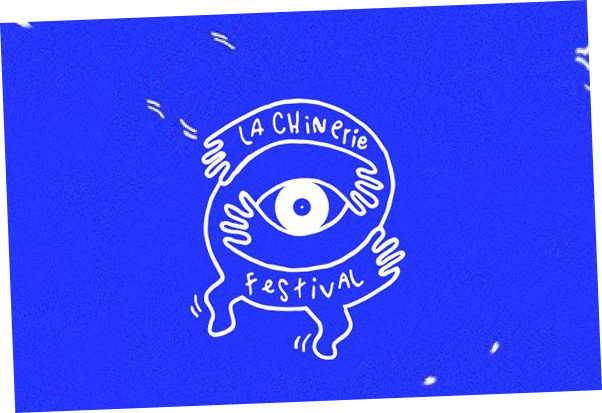
La Chinerie is a social media phenomenon that had attracted 15,000 members shortly after it was founded. La Chinerie is home to a community of passionate house, rap, and techno record hunters who love looking for rare finds in stores and antique shops. The group’s Lyon-based founder succeeded in crowd-funding their first, fully collaborative and horizontally organized festival in May 2017. Originally planned to take place in Paris in September 2017, this revolutionary kind of festival had to be rescheduled to June 2018 at the Villeurbanne Canal flea market near Lyon. The festival was canceled for security reasons and ended up making the rounds of a variety of locations in the Lyon area. Hopefully, the festival’s next edition will go off without a hitch.
The house-chanson française duo created by Pierre Rousseau and Simon Mény reached a milestone in June. One year after the release of its first album, Recto-Verso, Paradis gave a knock-out performance in front of a packed crowd at Paris’ prestigious Cigale concert hall. For months leading up to the event, the two artists had been successfully performing a blend of chanson française and electronic music all over France, a style they kicked off in 2011 with their cover of “La ballade de Jim” by Alain Souchon.
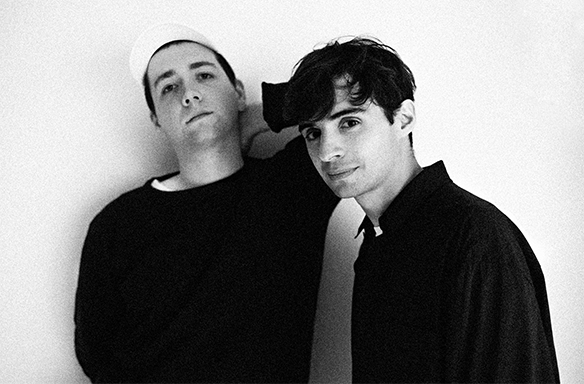
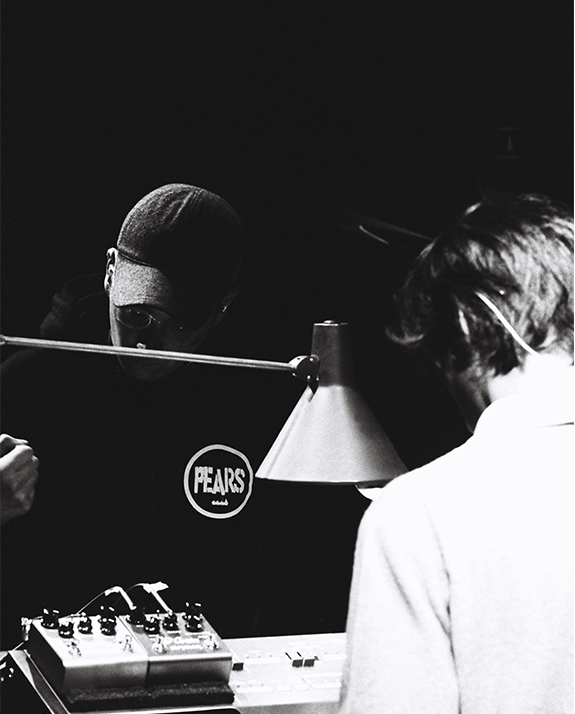
On September 13, the Edinburgh club Abstrakt announced that next Saturday’s performance by Jeremy Underground would be canceled. At fault were the outlandish demands and threats issued by the DJ’s booking agent, who asked for a four-star hotel with a gym and sauna (which came with a 400-euros-per-night price tag) after rejecting two other prospective hotels. Abstrakt couldn’t afford the room the DJ requested. Social media platforms were flooded with negative comments about the young house DJ. This rising star in the French house scene unwillingly became the symbol for the extravagant lifestyles of DJs and their entourages. The affair quickly became known as “Sauna-Gate.” Fortunately, the story ended well. Jeremy Underground ultimately performed at Abstrakt for a charity concert.

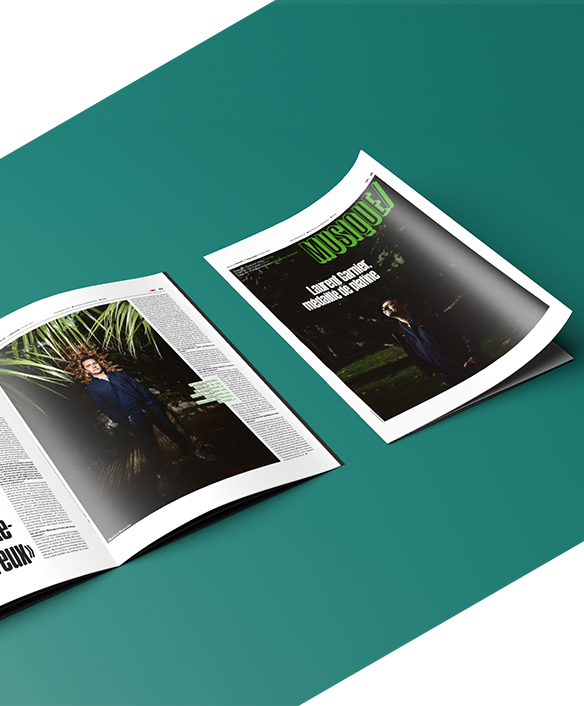
Laurent Garnier decided to celebrate the 30th anniversary of his career at his second home, the Rex Club. As he often says, Garnier first stepped behind the turntable as a professional artist at the age of 19 on October 7, 1987. During a Zumba event at the Manchester-based Haçienda, a club backed by the label Factory and the group New Order, he mixed from 9:00 p.m. to 2:00 a.m. At the time, English laws required clubs to close early. He performed under the name of DJ Pedro since Zumba was billed as a Spanish-themed night. Since then, he has become an ambassador for French electronic music and the country’s leading DJ. He is also the country’s most award-winning DJ, as the newspaper Libération pointed out in its extensive interview with the artist on October 7, 2017. After earning two ranks in the French Order of Arts and Letters, he was recognized as a Knight in the Legion of Honor by French President Hollande. It was Jack Lang, the long-standing Minister of Culture and protector of the French techno parade, who hung the medal around his neck during a private ceremony in southern France, where the DJ now lives. In the interview, Libération asked the DJ, who has been performing for 30 years, if he often finds himself playing before audience members who are the same age as his children. “When I perform, I always attract a pretty mixed crowd. As for playing for people who are the same age as my kids, I don’t mind it as long as I don’t look like an old, dusty jukebox. I’ve asked my friends to let me know when I become as pathetic looking as some rock groups. I don’t want to pull crowds for my nostalgic value alone.”
Renaud Gay became known by some through his work as the artistic production manager at the club Concrete. Those who have been around the scene the longest remember this lovely man as the founder of the Expressillon record label. Renaud Gay, who passed away from cancer, was responsible for bringing the British group Spiral Tribe, which he discovered in 1992, to French shores. Thanks to Renaud and his label, 69DB, Crystal Distortion and Ixy, both of which were members of “Spi,” were able to release their music as well. Renaud built bridges that helped an entire generation of techno, hardcore, and breakbeat musicians expand their horizons
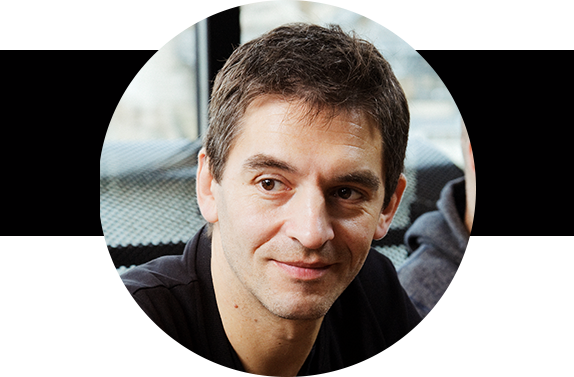

Grenoble-native Michel Amato, a.k.a The Hacker, a tireless promoter of a heady, martial style of electro-techno music, decided to step out on his record label, Zone. His fourth album, “Le Théâtre des Opérations”, named after the metaphysical journal of the writer Maurice G. Dantec, was published through the San Francisco label Dark Entries Records. Nevertheless, despite the label change, The Hacker retained the same dark tone throughout his eight-song album, which also served to showcase his expertise with the analog synthesizer. In this expertly crafted instrumental album, his long-time collaborator Miss Kittin added her voice to “Time X,” which pays tribute to the iconic sci-fi TV show, “Temps X”.
Who would have guessed a mere decade ago that a brand-new and incredibly diverse house scene would appear in France? Chief among this young generation of DJs and producers, who grew up with funk, groove, and disco music, is the Lyon-native Bruno Boumendil, a.k.a. Folamour. After an impressive set of maxis, he released an excellent premier album, UMAMI, through his record label Moonrise Hill Material in collaboration with the prestigious English label Classic Music Company. The album was a flawless success from start to finish
